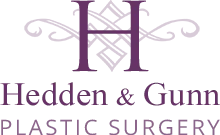Dermabrasion and Dermaplaning in Birmingham AL
Skin Resurfacing for Scars, Wrinkles and more
Dermabrasion and Dermaplaning are used to "refinish" the top layers of skin with a method of controlled surgical scraping, giving the skin a smoother appearance by softening the sharp edges of surface irregularities. Both of these minimally-invasive treatments can be performed on small areas of skin or on the entire face.
Dermabrasion is often used to improve the look of facial scars, including acne scars. Dermabrasion can also be used to smooth fine facial wrinkles, remove pre-cancerous growths, address sun-damaged skin and treat rhinophyma (a skin disorder that causes the nose to appear large, red and bumpy). Dermaplaning is also commonly used to treat deep acne scars.
Dermabrasion Candidates
Important factors to consider are your skin type, coloring and medical history. For example, African-American skin, Asian skin and other dark complexions may become permanently discolored or blotchy after skin refinishing. People who develop allergic rashes or other skin reactions, or who get frequent fever blisters or cold sores, may experience a flare-up. If you have freckles, they may disappear in the treated area.
Most surgeons will not perform treatment during the active stages of acne due to a greater risk of infection. The same may be true if you've had radiation treatments, a bad skin burn or a previous chemical peel.
Dermabrasion or dermaplaning may be covered by insurance when performed to remove precancerous skin growths or extensive scars. Check your policy or call your carrier to determine what's covered under your plan.
Alternative Procedures
Dermabrasion and dermaplaning can be used alone or in conjunction with other procedures. These include a facelift, scar removal/revision or a chemical peel.
Chemical peels are an alternative method of skin resurfacing more often used to treat fine wrinkles, while dermabrasion and dermaplaning are used for deeper imperfections such as acne scars. A non-chemical approach may be preferred for people with slightly darker skin, especially when treating limited areas of the face. Dermabrasion and dermaplaning are less likely to produce extreme changes and contrasts in skin color.
Microdermabrasion, a less invasive form of dermabrasion, uses a minimally abrasive instrument to gently sand the skin.
Your Dermabrasion Consultation
During your initial consultation, don't hesitate to ask any questions or express your concerns. Be prepared to discuss:
- Your surgical goals and expectations.
- Medical conditions, drug allergies and medical treatments.
- Current medications, vitamins, herbal supplements, alcohol, tobacco and drug use.
- Previous surgeries.
Your plastic surgeon may also:
- Evaluate your general health status and any pre-existing health conditions or risk factors.
- Take photographs for your medical records.
- Discuss your skin resurfacing options.
- Recommend a course of treatment.
- Discuss likely outcomes of dermabrasion and any risks or potential complications.
- Answer any questions you have about dermabrasion.
Dermabrasion Risks and Safety
Dermabrasion and dermaplaning are normally safe when performed by a qualified, experienced physician. The most common risk is a change in skin pigmentation. Permanent darkening of the skin may occur in some patients due to sun exposure in the days or months following surgery. On the other hand, some patients find the treated skin remains a little lighter or blotchy in appearance.
Some patients develop tiny whiteheads after surgery. These usually disappear on their own, or with the use of an abrasive pad or soap. They must occasionally be surgically removed. You may also develop enlarged skin pores; these usually shrink to near normal size once swelling has subsided.
Infection and scarring are rare, though possible, with skin resurfacing treatments. People who develop excessive scar tissue (keloid or hypertrophic scars) are usually treated with the application or injection of steroid medications to soften the scar.
Preparing for Dermabrasion
Your plastic surgeon will give you specific instructions on how to prepare for surgery, including guidelines on eating and drinking, and on avoiding aspirin and other medications that affect blood clotting. You may also be given special instructions regarding the care and treatment of your skin prior to surgery. If you smoke, you'll probably be asked to stop for a week or two before and after surgery, since smoking decreases blood circulation in the skin and impedes healing.
Skin resurfacing treatments are performed at our accredited Outpatient Surgery Facility, in a treatment room or at our on-site medical spa in Birmingham, Alabama. Be sure to arrange for someone to drive you home after your surgery and to help out afterward if needed.
Dermabrasion Procedure
Dermabrasion and dermaplaning may be performed under local anesthesia, which numbs the area, combined with a sedative to make you drowsy. You'll be awake but relaxed, and will feel minimal discomfort. Sometimes a numbing spray is used along with or instead of local anesthesia. In more severe cases, your surgeon may prefer to use general anesthesia, in which case you'll sleep through the procedure.
Dermabrasion and dermaplaning can be performed fairly quickly. The procedures usually take anywhere from a few minutes to an hour and a half, depending on how large an area of skin is involved. The procedure may be performed more than once or in stages, especially when scarring is deep or a large area of skin is involved.
In dermabrasion, the surgeon scrapes away the outermost layer of skin with a rough wire brush, or a burr containing diamond particles attached to a motorized handle. The scraping continues until the surgeon reaches the safest level that will make the scar or wrinkle less visible.
In dermaplaning, the surgeon uses a hand-held instrument called a dermatome. Resembling an electric razor, the dermatome has an oscillating blade that moves back and forth to evenly skim off the surface layers of skin that surround the craters or other facial defects. This skimming continues until the lowest point of the acne scar becomes more even with the surrounding skin.
The surgeon may then treat the skin with ointment, a wet or waxy dressing, a dry treatment or some combination of these.
Dermabrasion Recovery
Directly after the procedure, your skin will be fairly red and swollen, and eating and speaking may be difficult. You'll probably feel some tingling, burning or aching. Any pain you feel can be controlled with medications prescribed by your surgeon. The swelling will begin to subside within a few days to a week.
If you remember the scrapes you got when you fell down as a child, you'll have an idea of what to expect from this type of surgery. A scab or crust will form over the treated area as it begins to heal. This will fall off as a new layer of tight, pink skin forms underneath. Your face may itch as new skin starts to grow, and your surgeon may recommend an ointment to make you more comfortable. If ointment is applied immediately after surgery, little or no scab will form.
Your surgeon will give you detailed instructions on how to care for your skin after surgery. For men, this will include delaying shaving and using an electric razor your first time shaving post-surgery. It's very important that you follow your doctor's instructions to ensure the best possible healing.
If you notice the treated area beginning to get worse instead of better (if it becomes increasingly red, raised and itchy after it has started to heal), it may be a sign that abnormal scars are beginning to form. Call your surgeon as soon as possible so that treatment can begin early.
Dermabrasion Results
Skin resurfacing treatments can offer dramatic improvements in the surface of your skin that enhance your appearance and your self-confidence. However, it will take some time before you see the final results.
Your new skin will be a bit swollen, sensitive and bright pink for several weeks. The skin pinkness will take about 3 months to fade. In the meantime, you'll probably want to wear nonallergenic makeup when you go out. When your new skin is fully repigmented, the color should closely match the surrounding skin, making the procedure virtually undetectable.
Above all, it's important to protect your skin from the sun until the pigment has completely returned to your skin — as long as 6 to 12 months.
You can expect to be back at work in about 2 weeks. Your surgeon will probably advise you to avoid any activity that could cause a bump to your face for at least 2 weeks. More active sports, especially those involving a ball, should be avoided for 4 to 6 weeks. If you swim, stick to indoor pools to avoid sun and wind, and keep your face out of chlorinated water for at least 4 weeks. It will be at least 3 to 4 weeks before you can drink alcohol without experiencing a flush of redness.
Procedure Information © American Society of Plastic Surgeons

Dermabrasion skin resurfacing treats scars, wrinkles and skin irregularities to give your complexion a smoother look.
Birmingham, AL Office & Surgery Suites
Hedden & Gunn Plastic Surgery140 Village Street
Birmingham, AL 35242
205-980-1744 or 800-HeddenMD
 *
*  *
* 
Contact Us Today
Questions About Skin Procedures?
Contact our Birmingham, AL cosmetic center today if you have any questions about smoothing wrinkles and acne scars with Dermabrasion or Dermaplaning.
To schedule your consultation at the earliest possible date, please call 205-980-1744.
required fields are marked with an asterisk *
